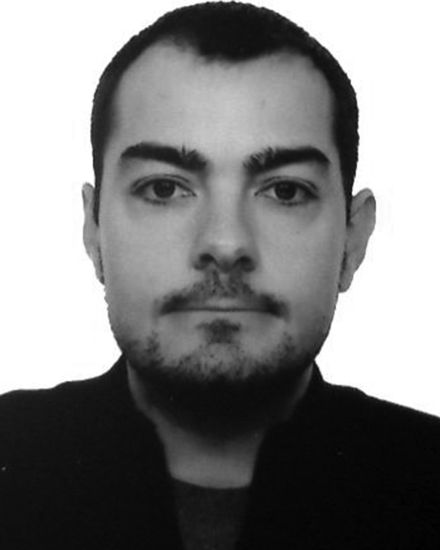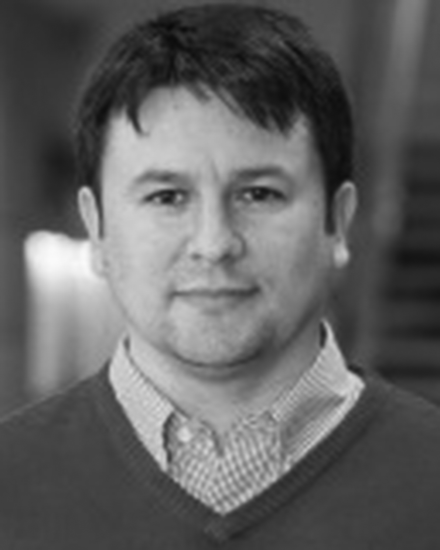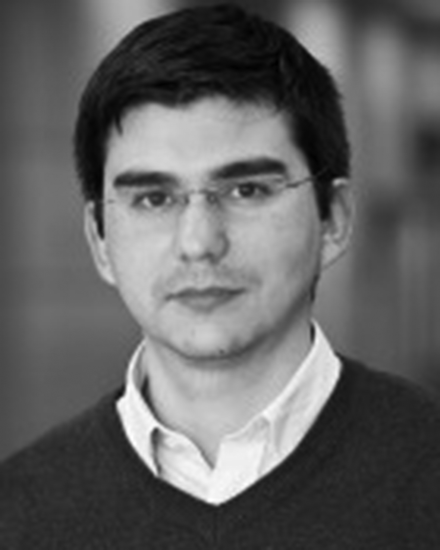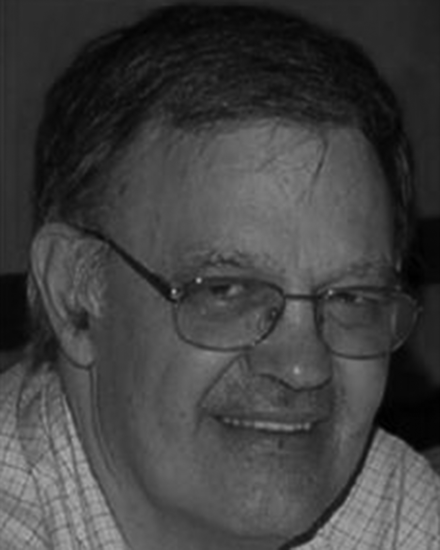Abstract:
Designing and developing web-enabled remote laboratories for pedagogical purposes is not an easy task. Often, developers (generally, educators who know the subjects they ...Show MoreMetadata
Abstract:
Designing and developing web-enabled remote laboratories for pedagogical purposes is not an easy task. Often, developers (generally, educators who know the subjects they teach but lack of the technical and programming skills required to build Internet-based educational applications) end up discarding the idea of exploring these new teaching and learning experiences mainly due to the technical issues that must be mastered. To tackle this problem, authors present a novel technique that allows developers to create remote labs in a quick, didactical, and straightforward way. This framework is based on the use of two well-known software tools in the scope of engineering education, Easy Java Simulations and LabVIEW. The development exploits a new feature of Easy Java Simulations known as EJS-elements that enables Java developers to create and integrate their own authoring libraries (elements) into EJS, thus increasing its application possibilities. Particularly, the EJS element here presented allows to LabVIEW programs be controlled from EJS applications through a communication network. This paper presents the element creation details and how this can be used to create web-enabled experimentation environments for educational purposes. A step by step example of development of a remote lab for automatic control education is described.
Published in: IEEE Transactions on Learning Technologies ( Volume: 8, Issue: 4, 01 Oct.-Dec. 2015)
Funding Agency:

Department of Informática and Automática, Universidad Nacional de Educación a Distancia,, Madrid, Spain
Jesús Chacón received the degree in automation and
industrial electronics engineering from the University of Córdoba, Spain, in 2010, and the PhD degree in
computer science from UNED, Madrid, Spain, in 2014. Since 2010, he has been at UNED Department of Computer Sciences
and Automatic Control as a full time researcher. His current research interests include simulation and control of
event-based control systems, and re...Show More
Jesús Chacón received the degree in automation and
industrial electronics engineering from the University of Córdoba, Spain, in 2010, and the PhD degree in
computer science from UNED, Madrid, Spain, in 2014. Since 2010, he has been at UNED Department of Computer Sciences
and Automatic Control as a full time researcher. His current research interests include simulation and control of
event-based control systems, and re...View more

Pontificia Universidad Católica de Valparaíso, Chile
Hector Vargas received the degree in electrical engineering from the
De la Frontera University, Temuco, Chile, in 2001 and the PhD degree in computer science from UNED, Madrid, Spain, in
2010. Since 2010, he has been with the Electrical Engineering School at Pontificia Universidad Catolica de Valparaiso.
His current research interests include simulation and control of dynamic systems, multiagent systems, and engineerin...Show More
Hector Vargas received the degree in electrical engineering from the
De la Frontera University, Temuco, Chile, in 2001 and the PhD degree in computer science from UNED, Madrid, Spain, in
2010. Since 2010, he has been with the Electrical Engineering School at Pontificia Universidad Catolica de Valparaiso.
His current research interests include simulation and control of dynamic systems, multiagent systems, and engineerin...View more

Pontificia Universidad Católica de Valparaíso, Chile
Gonzalo Farias received the degree in computer science from the De la
Frontera University, Temuco, Chile, in 2001 and the PhD degree in computer science from UNED, Madrid, Spain, in 2010.
Since 2012, he has been with the Electrical Engineering School at Pontificia Universidad Catolica de Valparaiso. His
current research interests include machine learning, simulation and control of dynamic system and engineering
educat...Show More
Gonzalo Farias received the degree in computer science from the De la
Frontera University, Temuco, Chile, in 2001 and the PhD degree in computer science from UNED, Madrid, Spain, in 2010.
Since 2012, he has been with the Electrical Engineering School at Pontificia Universidad Catolica de Valparaiso. His
current research interests include machine learning, simulation and control of dynamic system and engineering
educat...View more

Department of Informática and Automática, Universidad Nacional de Educación a Distancia,, Madrid, Spain
José Sánchez received the computer sciences degree in
1994 from Madrid Polytechnic University and the PhD degree in sciences from UNED in 2001 with a thesis on the
development of virtual and remote labs for teaching automatic control across the Internet. Since 1993, he has been at
UNED Department of Computer Sciences and Automatic Control as an assistant professor. His main research interests for
the time being: event...Show More
José Sánchez received the computer sciences degree in
1994 from Madrid Polytechnic University and the PhD degree in sciences from UNED in 2001 with a thesis on the
development of virtual and remote labs for teaching automatic control across the Internet. Since 1993, he has been at
UNED Department of Computer Sciences and Automatic Control as an assistant professor. His main research interests for
the time being: event...View more

Department of Informática and Automática, Universidad Nacional de Educación a Distancia,, Madrid, Spain
Sebastián Dormido received the BS degree in physics from
Complutense University, Madrid, Spain, in 1968 and the PhD degree in the sciences from Basque Country University,
Bilbao, Spain, in 1971. He received a Doctor Honorary degree from the Universidad de Huelva and Universidad de
Almería. In 1981, he was appointed as a professor of control engineering at UNED, Madrid. His scientific
activities include computer contro...Show More
Sebastián Dormido received the BS degree in physics from
Complutense University, Madrid, Spain, in 1968 and the PhD degree in the sciences from Basque Country University,
Bilbao, Spain, in 1971. He received a Doctor Honorary degree from the Universidad de Huelva and Universidad de
Almería. In 1981, he was appointed as a professor of control engineering at UNED, Madrid. His scientific
activities include computer contro...View more

Department of Informática and Automática, Universidad Nacional de Educación a Distancia,, Madrid, Spain
Jesús Chacón received the degree in automation and
industrial electronics engineering from the University of Córdoba, Spain, in 2010, and the PhD degree in
computer science from UNED, Madrid, Spain, in 2014. Since 2010, he has been at UNED Department of Computer Sciences
and Automatic Control as a full time researcher. His current research interests include simulation and control of
event-based control systems, and remote and virtual labs in control engineering.
Jesús Chacón received the degree in automation and
industrial electronics engineering from the University of Córdoba, Spain, in 2010, and the PhD degree in
computer science from UNED, Madrid, Spain, in 2014. Since 2010, he has been at UNED Department of Computer Sciences
and Automatic Control as a full time researcher. His current research interests include simulation and control of
event-based control systems, and remote and virtual labs in control engineering.View more

Pontificia Universidad Católica de Valparaíso, Chile
Hector Vargas received the degree in electrical engineering from the
De la Frontera University, Temuco, Chile, in 2001 and the PhD degree in computer science from UNED, Madrid, Spain, in
2010. Since 2010, he has been with the Electrical Engineering School at Pontificia Universidad Catolica de Valparaiso.
His current research interests include simulation and control of dynamic systems, multiagent systems, and engineering
education.
Hector Vargas received the degree in electrical engineering from the
De la Frontera University, Temuco, Chile, in 2001 and the PhD degree in computer science from UNED, Madrid, Spain, in
2010. Since 2010, he has been with the Electrical Engineering School at Pontificia Universidad Catolica de Valparaiso.
His current research interests include simulation and control of dynamic systems, multiagent systems, and engineering
education.View more

Pontificia Universidad Católica de Valparaíso, Chile
Gonzalo Farias received the degree in computer science from the De la
Frontera University, Temuco, Chile, in 2001 and the PhD degree in computer science from UNED, Madrid, Spain, in 2010.
Since 2012, he has been with the Electrical Engineering School at Pontificia Universidad Catolica de Valparaiso. His
current research interests include machine learning, simulation and control of dynamic system and engineering
education.
Gonzalo Farias received the degree in computer science from the De la
Frontera University, Temuco, Chile, in 2001 and the PhD degree in computer science from UNED, Madrid, Spain, in 2010.
Since 2012, he has been with the Electrical Engineering School at Pontificia Universidad Catolica de Valparaiso. His
current research interests include machine learning, simulation and control of dynamic system and engineering
education.View more

Department of Informática and Automática, Universidad Nacional de Educación a Distancia,, Madrid, Spain
José Sánchez received the computer sciences degree in
1994 from Madrid Polytechnic University and the PhD degree in sciences from UNED in 2001 with a thesis on the
development of virtual and remote labs for teaching automatic control across the Internet. Since 1993, he has been at
UNED Department of Computer Sciences and Automatic Control as an assistant professor. His main research interests for
the time being: event-based control, networked control systems, remote and virtual laboratories in control
engineering, and pattern recognition in nuclear fusion databases.
José Sánchez received the computer sciences degree in
1994 from Madrid Polytechnic University and the PhD degree in sciences from UNED in 2001 with a thesis on the
development of virtual and remote labs for teaching automatic control across the Internet. Since 1993, he has been at
UNED Department of Computer Sciences and Automatic Control as an assistant professor. His main research interests for
the time being: event-based control, networked control systems, remote and virtual laboratories in control
engineering, and pattern recognition in nuclear fusion databases.View more

Department of Informática and Automática, Universidad Nacional de Educación a Distancia,, Madrid, Spain
Sebastián Dormido received the BS degree in physics from
Complutense University, Madrid, Spain, in 1968 and the PhD degree in the sciences from Basque Country University,
Bilbao, Spain, in 1971. He received a Doctor Honorary degree from the Universidad de Huelva and Universidad de
Almería. In 1981, he was appointed as a professor of control engineering at UNED, Madrid. His scientific
activities include computer control of industrial processes, model-based predictive control, hybrid control, and
web-based labs for distance education. He has authored or coauthored more than 250 technical papers in international
journals and conferences and has supervised more than 35 PhD thesis. From 2001 to 2006, he was the president of the
Spanish Association of Automatic Control, CEA-IFAC. He received the National Automatic Control prize from IFAC Spanish
Automatic Control Committee.
Sebastián Dormido received the BS degree in physics from
Complutense University, Madrid, Spain, in 1968 and the PhD degree in the sciences from Basque Country University,
Bilbao, Spain, in 1971. He received a Doctor Honorary degree from the Universidad de Huelva and Universidad de
Almería. In 1981, he was appointed as a professor of control engineering at UNED, Madrid. His scientific
activities include computer control of industrial processes, model-based predictive control, hybrid control, and
web-based labs for distance education. He has authored or coauthored more than 250 technical papers in international
journals and conferences and has supervised more than 35 PhD thesis. From 2001 to 2006, he was the president of the
Spanish Association of Automatic Control, CEA-IFAC. He received the National Automatic Control prize from IFAC Spanish
Automatic Control Committee.View more

